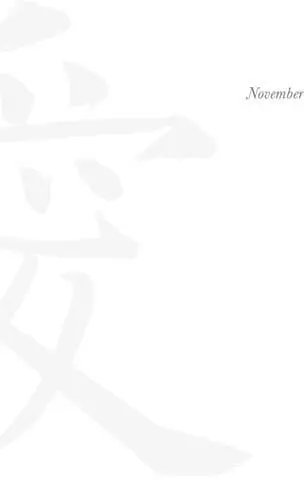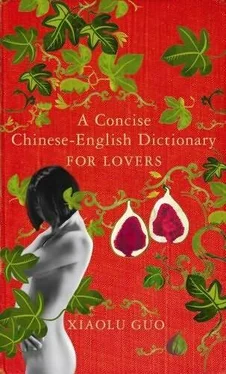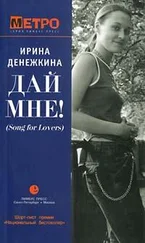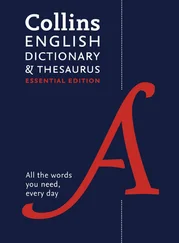I open my notebook again, looking at my everyday’s study, my everyday’s effort. I see myself trying hard to put more words and sentences into blank pages. I try to learn more vocabularies to be able to communicate. I try to put the whole dictionary in my brain. But in this remote countryside, in this nobody’s wonderland, what’s the point of this? It doesn’t matter if one speaks Chinese or English here; it doesn’t matter if one is mute or deaf. Language is not important anymore. Only the simple physical existence matters in the nature.

*

pathology n. the scientific study of diseases.
You, my English patient, keep feeling ill. I used to lie beside you, whenever you suffered from headache or bodyache. I would just stop what I was doing and come to lie beside you. But after so long, so often you get ill, somehow I run out of patience.
“Honey, I know how to cure your depression: practice yoga every morning, ride your bike every afternoon, and go swimming every evening.”
“Perhaps I just need to find the right medicine.”
“No. I don’t think you can solve it under the medication way. The problem is from your Qi, your energy.”
You lie there, look at the ceiling vaguely: “Every morning I wake up and I feel tired before I’m even out of bed.”
“That’s because your illness is brought from your thoughts. You hate this society so much, and you feel so fed up with this place. You don’t have any disease. You are just like your old van, old, too old, every part of the mechanic fell apart. Remember? Your white van and you, used to be so energetic.”
“I just wish I knew what it was that was wrong with me.”
“You Westerners always want to precisely name illness. But in China, we don’t name all these kind of diseases. Because we think all the illness actually causes from very simple reason. If you want to solve your illness then you must start to calm your whole body, not just taking pills every time.”
“OK, tell me more.” You rise your head from the bed.
“There are three general classes of the causes of illness in Chinese medication. Internal Pathogenic Qi, External Pathogenic Qi, and Trauma. Internal Pathogenic are organ dis-function, External Pathogenic are Qi from outside the body which enter the body, and Trauma is trauma.”
“Trauma is Trauma?”
“I guess Trauma causes Qi and blood to leave the normal currents of flow. And it causes the stagnation of your inner energy. So parts of your body will be suffered from the lack of Qi. That’s why you get tired everyday easily. And that’s why you get headache regularly.”
“How do you know all this?” You stare at me.
“Because I am a Chinese.”
“You mean all Chinese people know about this?”
“I think so.”
“Are you serious? Even the ones who work in the Chinese takeaway on Hackney Road?”
“You can ask them, next time when we pass by,” I say.
“You know, you never tell me things like this.” Now you get up from the bed. You must feel better.
“But you never really ask me. You never really pay attention to my culture. You English once took over Hong Kong, so you probably heard of that we Chinese have 5,000 years of the greatest human civilisation ever existed in the world…Our Chinese invented paper so your Shakespeare can write two thousand years later. Our Chinese invented gunpowder for you English and Americans to bomb Iraq. And our Chinese invented compass for you English to sail and colonise the Asian and Africa.”
You stare at me, no words. Then you leave the bed, and put the kettle on.
“Do you want some tea?” you ask.

pessimism n. the tendency to expect the worst in all things.

optimism n. the tendency to take the most hopeful view.
A petal is a pessimist. A petal will fade away.
An old man’s body is a pessimist, things are rotten and falling apart.
A buddhist is a pessimist in his reality, but in the end when he faces his death he is an optimist, because he has prepared for whole life to welcome the peace of death.
A farmer is an optimist, because he believes the potatoes will come out underneath the soil.
A fishman is an optimist, because he knows whatever how far he fishes, he will come back with his boat full of fish.
A pesticide is an optimist. It means sustain the good life by killing bad life.
Everyone tries to be an optimist. But being an optimist is a bit boring and not honest. Losers are more interesting than winners.
It is a quarter to six, and I am cooking dinner for you. It is already inky dark outside. I look at the clock and go back to kitchen checking the food. 6:00, then 6:10, then 6:20, then 6:30. I turn on the radio, listen to whatever I can understand. Finally it is 7:00. Since then every single minute cannot bear anymore. Paranoia takes over the kitchen. 7:30 now. You told me that you would be back home before six. Why you never on time? Are you flirting with somebody right now? Or maybe things much worse…
Trying to stop this painful visual imagination, I turn up the volume of the radio. Today’s top news: “A woman murdered her husband’s pregnant lover after she discovered the love affair…She was found guilty in court this afternoon.”
The soup is still bubbling on the fire but is nearly burnt. Murder…The whole world is crashed. The paranoia penetrates my body through my mind. My muscles are shaking badly, and my stomach starts aching. I am in the big nerve and I might do anything to destroy the furniture in this house, the symbols of our life together.
Love can be so pessimistic, and love can be so destructive. Love can lead a woman being lost, and in that lost world perhaps the only thing to do is leave to build a new world.
9.00, you come back home. I pour all the food into the rubbish bin. You are a bit scared seeing what I am doing. I say loudly, to myself, and to the whole house:
“Never cook food before the man comes back home!”

electric adj. 1. produced by, transmitting, or powered by electricity; 2. exciting or tense.
Hair, bosom, hips, bend of legs, negligent falling hands all diffused…mine too diffused,
Ebb stung by the flow and flow stung by the ebb…love-flesh swelling and deliciously aching
Limitless limpid jets of love hot and enormous…quivering jelly of love…white-blow and delirious juice,
Bridegroom-night of love working surely and softly into the prostrate dawn,
Undulating into the willing and yielding day,
Lost in the cleave of the clasping and sweet-flesh’d day.
This is in a book from Walt Whitman, which sits on your bookshelf covered by the thick dust. But during the last two weeks it becomes my bible. I read it every day and I think I understand it.
Jelly of love. I think of you. You are like the man in Walt Whitman’s poem. I imagine you are naked by the sea, a wild landscape behind you. You are a young man with a healthy body and a free spirit. You are a simple farmer, with a natural passion. You have beautiful hips and legs and hands, and you have a strong love and sensibility to the nature. You are friends with the seagulls, the bees, the dragonflies. And you know that dolphin in the distance dancing on the sea. You walk through the fields of apple trees, and pass by the farm houses, and then down to the sea. You body carries the smell of grass and the warmth of earth to the sea water…I look at your reality here. How could these things being taken away from you totally? You will die. You will die. You will die like a fish without water.
Читать дальше

















